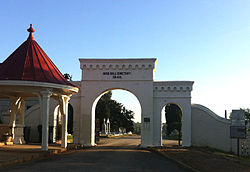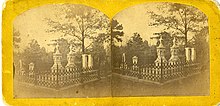
Macon, officially Macon–Bibb County, is a consolidated city-county in Georgia, United States. Situated near the fall line of the Ocmulgee River, it is 85 miles (137 km) southeast of Atlanta and near the state's geographic center — hence its nickname "The Heart of Georgia."

The Allman Brothers Band were an American rock band formed in Jacksonville, Florida in 1969 by brothers Duane Allman and Gregg Allman, as well as Dickey Betts, Berry Oakley (bass), Butch Trucks (drums), and Jai Johanny "Jaimoe" Johanson (drums). Subsequently, based in Macon, Georgia, they incorporated elements of blues, jazz and country music and their live shows featured jam band-style improvisation and instrumentals.

Eat a Peach is a 1972 double album by American rock band the Allman Brothers Band, containing a mix of live and studio recordings. Following their artistic and commercial breakthrough with the July 1971 release of the live album At Fillmore East, the Allman Brothers Band got to work on their third studio album. Drug use among the band became an increasing problem, and at least one member underwent rehab for heroin addiction. On October 29, 1971, lead and slide guitarist Duane Allman, group leader and founder, was killed in a motorcycle accident in the band's adopted hometown of Macon, Georgia, making it the final album to feature him.

Howard Duane Allman was an American rock and blues guitarist and the founder and original leader of the Allman Brothers Band, for which he was inducted into the Rock and Roll Hall of Fame in 1995.

Gregory LeNoir Allman was an American musician, singer and songwriter. He was known for performing in the Allman Brothers Band. Allman grew up with an interest in rhythm and blues music, and the Allman Brothers Band fused it with rock music, jazz, and country at times. He wrote several of the band's biggest songs, including "Whipping Post", "Melissa", and "Midnight Rider". Allman also had a successful solo career, releasing seven studio albums. He was born and spent much of his childhood in Nashville, Tennessee, before relocating to Daytona Beach, Florida and then Macon, Georgia.

Ocmulgee Mounds National Historical Park in Macon, Georgia, United States preserves traces of over ten millennia of culture from the Native Americans in the Southeastern Woodlands. Its chief remains are major earthworks built before 1000 CE by the South Appalachian Mississippian culture These include the Great Temple and other ceremonial mounds, a burial mound, and defensive trenches. They represented highly skilled engineering techniques and soil knowledge, and the organization of many laborers. The site has evidence of "12,000 years of continuous human habitation." The 3,336-acre (13.50 km2) park is located on the east bank of the Ocmulgee River. Macon, Georgia developed around the site after the United States built Fort Benjamin Hawkins nearby in 1806 to support trading with Native Americans.
"Little Martha" was the only Allman Brothers Band track written solely by group leader and partial namesake Duane Allman. The song first appeared as the final studio track on the Allman Brothers Band's fourth album, Eat a Peach, released in 1972. The track was recorded in October 1971, a few weeks before Duane Allman's death in a motorcycle accident.

Alfred Holt Colquitt was an American lawyer, preacher, soldier, and politician. Elected as the 49th Governor of Georgia (1877–1882), he was one of numerous Democrats elected to office as white conservatives took back power in the state at the end of the Reconstruction era. He was elected by the Georgia state legislature to two terms as U.S. Senator, serving from 1883 to 1894 and dying in office. He had served as a United States officer in the Mexican-American War and in the Confederate States Army during the American Civil War, reaching the rank of brigadier general.
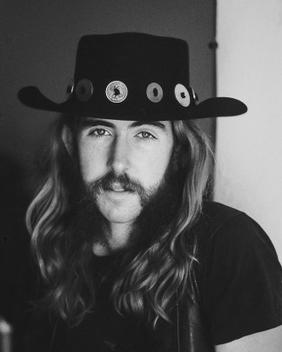
Raymond Berry Oakley III was an American bassist and one of the founding members of the Allman Brothers Band. Known for his long, melodic bass runs, he was ranked number 46 on Bass Player magazine's list of "The 100 Greatest Bass Players of All Time". He was posthumously inducted into the Rock and Roll Hall of Fame as a member of the Allman Brothers Band in 1995.

The Allman Brothers Band is the debut studio album by American rock band the Allman Brothers Band. It was released in the United States by Atco Records' subsidiary Capricorn on November 4, 1969, and produced by Adrian Barber. Formed in 1969, the Allman Brothers Band came together following various musical pursuits by each individual member. Guitarist and bandleader Duane Allman moved to Jacksonville, Florida where he led large jam sessions with his new band, one he had envisioned as having two guitarists and two drummers. After rounding out the lineup with the addition of his brother, Gregg Allman, the band moved to Macon, Georgia, where they were to be one of the premiere acts on Capricorn.

Idlewild South is the second studio album by American southern rock band the Allman Brothers Band. Produced by Tom Dowd, the album was released on September 23, 1970 in the United States by Atco Records and Capricorn Records. Following the release of their 1969 debut, the Allman Brothers Band toured the United States extensively to promote the album, which had little commercial success. Their performances, however, did create positive word of mouth exposure that extended to more famous musicians, such as Eric Clapton, who invited group leader Duane Allman to contribute to his 1970 album Layla and Other Assorted Love Songs.

Brothers and Sisters is the fourth studio album by American rock band The Allman Brothers Band. Co-produced by Johnny Sandlin and the band, the album was released in August 1973 in the United States by Capricorn Records. Following the death of group leader Duane Allman in 1971, the Allman Brothers Band released Eat a Peach (1972), a hybrid studio/live album that became their biggest-selling album to date. Afterwards, the group purchased a farm in Juliette, Georgia, to become a "group hangout". However, bassist Berry Oakley was visibly suffering from the death of Duane, excessively drinking and consuming drugs. In November 1972, after nearly a year of severe depression, Oakley was killed in a motorcycle accident, making it the last album on which he played.
"In Memory of Elizabeth Reed" is an instrumental composition by the American group The Allman Brothers Band. It first appeared on their second studio album, Idlewild South (1970), released on Capricorn Records. The jazz-influenced piece was written by guitarist Dickey Betts, among his first writing credits for the group. Betts named it after a headstone he saw for Elizabeth Jones Reed Napier in Rose Hill Cemetery in the band's hometown of Macon, Georgia. Multiple versions of the composition have been recorded, with the version performed on the group's 1971 live album At Fillmore East generally considered the definitive rendition.
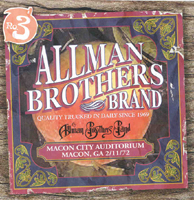
Macon City Auditorium: Macon, GA 2/11/72 is a two-CD live album by the Allman Brothers Band. It was recorded at the Macon City Auditorium in Macon, Georgia on February 11, 1972. The third archival concert album from the Allman Brothers Band Recording Company, it was released in 2004.
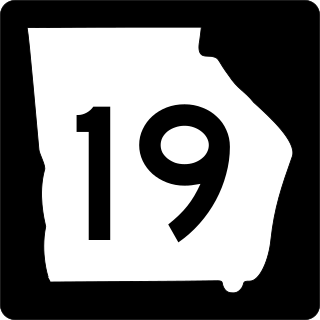
State Route 19 (SR 19) is a 152-mile-long (245 km) state highway that travels southeast-to-northwest through portions of Bacon, Jeff Davis, Appling, Telfair, Wheeler, Laurens, Twiggs, Bibb, and Monroe counties in the central part of the U.S. state of Georgia. The highway travels from its southern terminus at US 1/US 23/SR 4 north of Alma to its northern terminus at US 41/SR 18 in Forsyth. It also travels through Hazlehurst, Lumber City, Dublin, and Macon.
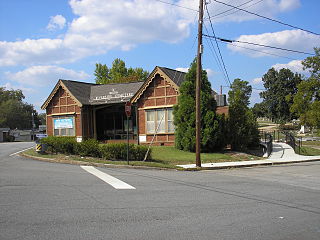
Riverside Cemetery is a historic rural cemetery in Macon, Georgia established in 1887. It is approximately 54 acres (22 ha) in size and privately owned. Over 18,000 people are interred here.

Duane Betts is an American guitarist and singer-songwriter. He leads Duane Betts & Palmetto Motel, and is a co-founding member of The Allman Betts Band. He was also a guitarist and singer for Dickey Betts & Great Southern, led by his father, Dickey Betts. He was previously a member of several other groups, including Backbone69, Whitestarr, Brethren of the Coast, Dawes, Jamtown, and Duane Betts & the Pistoleers.

The Old City Cemetery is a small cemetery located in Macon, Georgia, United States. Established in 1825, it saw burials until the 1840s, when Rose Hill Cemetery, a much larger cemetery in the city, opened. Following this, the cemetery fell into ruins, and following failed efforts in the late 1800s to convert the area to a public park, the cemetery was restored in the 1970s. The cemetery is located in the Macon Railroad Industrial District, which is listed on the National Register of Historic Places.
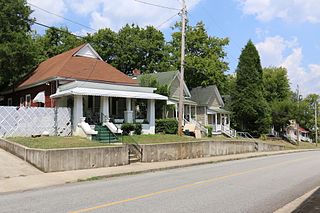
The Pleasant Hill Historic District is a historic neighborhood in Macon, Georgia, and has been known as an African American community. It is bound by Madison Street, north of Vineville Avenue, east of Rogers Avenue, and south of Neal Avenue.
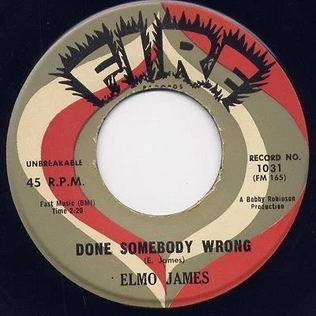
"I Must Have Done Somebody Wrong" is a blues song written and recorded by Eddie Kirkland in 1959. Using the same lyrics but modifying aspects of the music, Elmore James recorded it as "Done Somebody Wrong" in 1960; he took sole writing credit for it and it came to be known as an Elmore James song. "Done Somebody Wrong" was interpreted by the Allman Brothers Band in 1971 and featured on their classic live album At Fillmore East. As Billboard magazine has stated, the song became "more associated with the Allmans than with James in the end."
